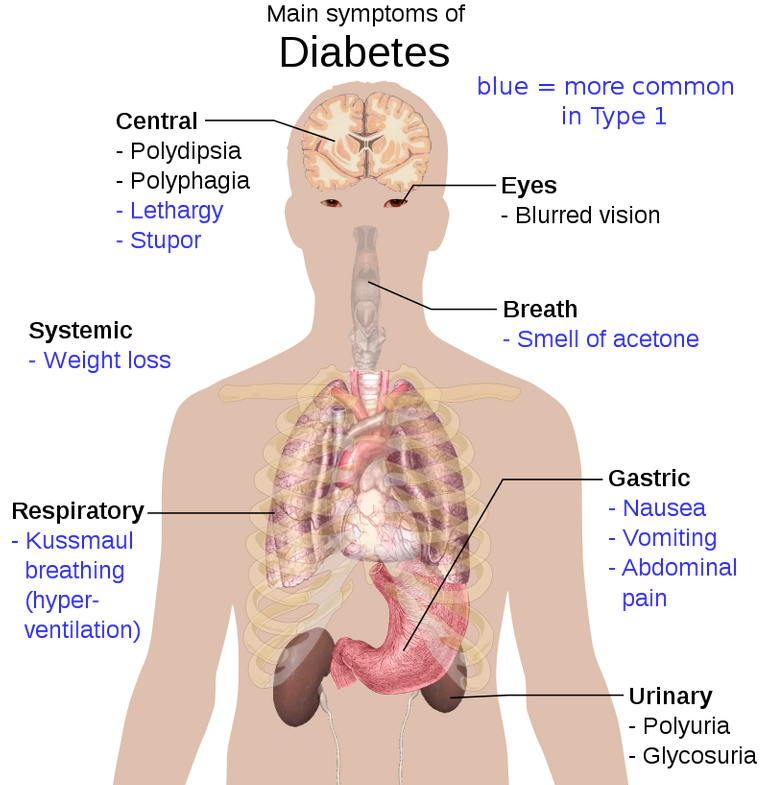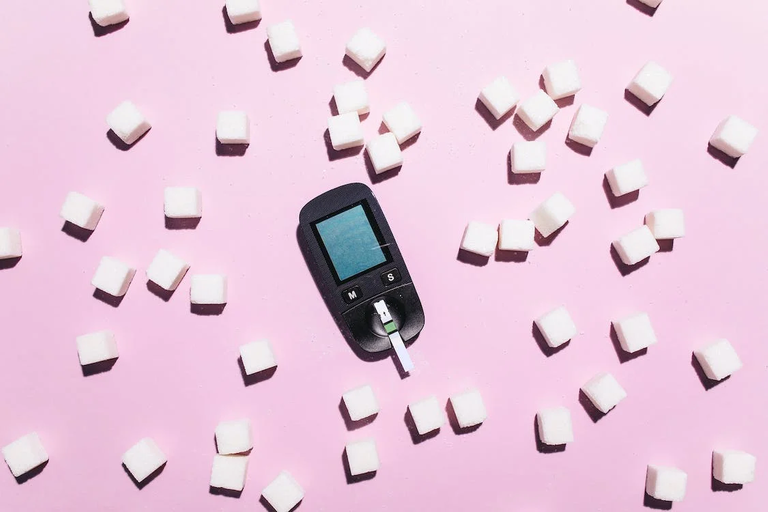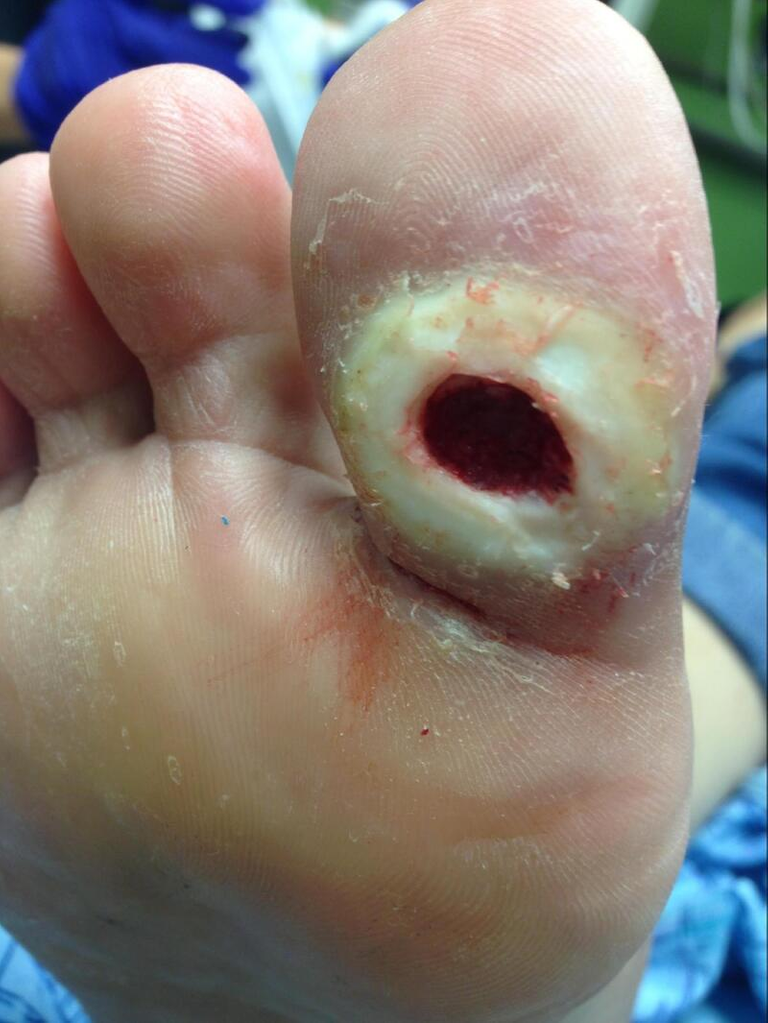Why diabetes is so deadly(Every person above 30 should read this!!!)
A few days ago, my mother's friend's husband came around, and he expressed some worries to me.
He told me he was not able to stand for long, and when he stands, he experiences a lot of pain. He also complained of a serious, crushing chest pain. He went on to talk about his erection, how he was not able to perform as he used to some years back. The erection problems gave him a lot of concerns, as he claims not to feel like a man again.
My first guess was chronic complications of diabetes. I went on to ask him about his urine. He agreed that his urine was foamy. With this last question, I was able to clinch my diagnosis of diabetes.
I visited him about a year ago. He told me he had sugar problems casually. I told him to do a test called glycated hemoglobin. He did it and sent me a result. His glycated hemoglobin was about 8%. I suggested that he see an endocrinologist—a doctor in charge of issues regarding hormones.. I don't think he visited the endocrinologist.
Anyway, I took him to a specialist and he had almost all the complications of diabetes. This was a very sad discovery for him. I advised him to take his health seriously and he promised to.
In today's post, I will be talking about diabetes, its complications, and prevention.
 Source
SourceWhat is diabetes?
Diabetes is a condition in which the body loses its ability to regulate and metabolize glucose. Insulin is a hormone that helps regulate blood glucose. The pancreas is the organ responsible for producing insulin. Insulin regulates blood sugar by moving it from the blood into organs that need it like the muscles. So when there is a problem with insulin, diabetes is the result.
Classification/Types of Diabetes
There are different classifications of diabetes. However, the most common classification of diabetes classifies diabetes into;
- Type 1 diabetes
- Type 2 diabetes.
- Gestational diabetes
Type 1 diabetes
This is a type of diabetes in which the body does not produce insulin. There are cells within the pancreas that are responsible for secreting insulin. These cells are called beta cells. In type 1 diabetes, there is destruction of the beta cells, which means that insulin is not secreted into the blood and so, therefore, blood glucose is constantly high. The cells are destroyed by the body- a phenomenon known as autoimmunity. Due to the fact that the problem is with insulin secretion, the treatment is lifelong use of insulin.
Type 2 diabetes

Pexels
This is when someone becomes resistant to insulin. This means the body is secreting insulin, but the insulin is not able to work as a result of several factors. One of the major reasons why people become insulin resistant is weight gain. Some studies have associated insulin resistance with obesity.
Gestational diabetes:
This is when the blood sugar increases as a result of the hormones released by the placenta during pregnancy. This is diabetes caused by pregnancy.
Diabetes is on the rise...
There has been an increasing trend in the number of people living with diabetes, especially type 2 diabetes, in recent times. According to the World Health Organisation, the number rose from 108 million in 1980 to over 400 million in 2014. It was also observed to be the 9th leading cause of death worldwide. Interestingly, the incidence is increasing in low and middle-income countries. Some people have attributed this to westernization of diets and an increase in the sedentary lifestyle of people in recent times.
According to the International Diabetes Foundation, diabetes occurs more in men.
Diabetes is a silent killer.

pixabay
The clinical presentation of diabetes is dependent on the type. Generally, the symptoms include
- Increasing hunger, which is called polyphagia,
- Increased thirst, known as polydipsia
- Increased urination, known as polyuria
These above symptoms are referred to as the "3 Ps" of diabetes. Most people will complain of excessive urination in the night as this might be the earliest sign of the disease.
Other symptoms include:
- Weight loss, which is usually observed in people with type 1 disease, whereas people with type 2 disease have significant weight gain. Abdominal obesity is a striking feature in people with type 2 diabetes.
- Blurry vision is also another symptom that most people fail to identify. They usually complain of having to change their reading glasses too frequently. One of the things to think about once you hear a person say this is diabetes.
- Poor wound healing
- Fatigue
Diagnosis
 A glucometer- a machine that measures the concentration of blood glucose in seconds
A glucometer- a machine that measures the concentration of blood glucose in secondsThe diagnosis of diabetes is made by checking the blood glucose in 4 ways.
1. Glycated hemoglobin; This is a test that measures the percentage of sugar attached to hemoglobin. The higher the percentage, the higher the person's blood sugar. According to the CDC, glycated hemoglobin of greater than 6.5% is suggestive of diabetes.
It checks the average blood sugar level over a 3 month period. It is a test used to assess control of one's diabetes.
2. Fasting blood glucose: This is done before a person eats in the morning. The normal value is less than 5.6mmol/l. A value of 5.6 to 6.9 mmol/L is considered prediabetic. Anything greater than 7.0 mmol/L is diabetes.
3. Random blood glucose is similar to fasting, just that this is done when a person has eaten. A person is said to have diabetes when their random blood sugar concentration is greater than 200 mg/dl.
Diabetes can be treated when treatment starts early.
Treatment of diabetes is dependent on the cause of diabetes.

By Reza babaeian - Own work, CC BY-SA 3.0, wikimedia
The picture above shows
a brand of insulin and an insulin injection used in the treatment of diabetes
Like I earlier said, diabetes can be due to destruction of the cells that produce insulin. When this is the case, insulin is the mainstay of treatment.
However, if the cause is due to insulin resistance, the treatment will be mainly focused on how to either reduce insulin resistance or reduce blood glucose.
Reducing insulin resistance has to do with losing weight, mainly as people with abdominal obesity have been seen to be highly insulin resistant. Also, studies have shown that when this group of people lose weight, they gain better glucose control.
Another way of reducing blood glucose is by administering glucose lowering agents called oral hypoglycaemic agents. These drugs function by reducing the concentration of glucose in the blood.
The complications of diabetes affect every system in the body.
Diabetes, like many other diseases, has complications. The problem with diabetes is that it can affect any system in the body.
Diabetes can affect the vessels in the eye and cause blindness. When diabetes leads to blindness, it is called diabetic retinopathy. It usually starts with frequent changing of glasses, which people mistake for a refractive error. This is why people with eye problems should see an ophthalmologist and not an optometrist first. This happens to be a common thing in Nigeria.
Another complication of diabetes is a condition called diabetic nephropathy. This is when diabetes damages the kidneys. This is one of the most deadly complications of diabetes, as the cost of therapy for a kidney disease can be enormous. Also, a kidney disease can lead to a mirage of conditions like hypertension, which can lead to heart failure or a stroke.
Diabetes can be complicated by a condition known as peripheral neuropathy. This is a condition where nerves are affected by high blood glucose. This usually presents with pain while standing. They describe the pain as excruciating. Also. when examined by a doctor, they are noted to have lost sensation in their legs. This is particularly dangerous as they could sustain a cut or injury without even noticing.
I once heard of a man who didn't know he had a nail under his foot for days till his relatives discovered there was something smelling and it was his wound.

By Mark A. Dreyer, DPM, FACFAS -ncbi, CC BY 4.0, Wikimediaa picture showing a diabetic foot ulcer below the big toe
Diabetes can affect the vessels of the body. This can lead to the formation of a foot ulcer when it affects a vessel in the leg—a condition known as diabetic foot ulcer. This affectation of vessels is what makes people living with diabetes prone to amputations. I will talk about diabetic foot ulcers in another post.
Another serious complication of diabetes is called diabetic gastropathy. This is a condition when these patients are unable to pass stool due to the delayed emptying of their stomach. They usually feel bloated and constipated. Diabetic gastropathy is caused by affectation of the nerves that help with the emptying of the stomach.
Erectile dysfunction is one complication of diabetes that most people either forget to mention or are too shy to admit. Erectile dysfunction is also a very serious complication of diabetes. They most often complain of not being able to have more than a round of sex. They also complain of the erection not being hard enough.
 Pexels
PexelsDiabetes can be prevented.
Diabetes is a global health problem and the approach to prevention should go beyond individual prevention.
The first and most important step in prevention is health education. People need to be educated about the condition. Children should be taught in schools. Mothers should be taught. Everyone deserves to learn about the risk factors for diabetes. Things like a good diet and exercise should be talked about more often. Exercise comes with a lot of benefits, and one of those benefits is its role in preventing diabetes.

Pexels
The next step in prevention is in rapid identification and diagnosis of the disease. A few days ago, I went to see a friend; and I asked him if he had checked his father's blood glucose. He said he hadn't, so we did a rapid glucose test and discovered he was diabetic. This was an incidental finding. This goes to say that there are a lot of people living with diabetes without knowing, and early screening and diagnosis will help prevent complications.
Another way of preventing it is by starting treatment early. Although this does not stop the disease, it will prevent the development of complications. Regular check-ups and adherence to drugs will prevent complications from developing. Early treatment also means early prevention of disability and mortality.
Key notes
Diabetes is a condition caused by the body's inability to regulate blood glucose.
It can be caused by a deficiency of the hormone insulin or by the resistance of the body to insulin.
The earliest signs of the disease are excessive urination, excessive eating, and excessive thirst.
Treatment is dependent on the cause. If it is due to insulin deficiency, the goal of treatment will be aimed at replacing insulin. If it is caused by resistance, then the treatment will be to directly lower the blood glucose.
Diabetes has so many complications. The complications can range from minor things like difficulty in wound healing to serious problems like kidney problems and blindness.
Finally, effective prevention has to deal with education and early diagnosis of the condition. Rapid screening is one of the simplest ways to diagnose the disease.
I had a great read. Thank you
Yay! 🤗
Your content has been boosted with Ecency Points, by @bhoa.
Use Ecency daily to boost your growth on platform!
Support Ecency
Vote for new Proposal
Delegate HP and earn more
One of the worst combination is diabetes with a background history of hypertension. It easily leads to stroke
The funny think is diabetes can predispose one to hypertension
And stroke my friend is the likely end result which can lead to disability and an inability to function in society effectively
Thanks for your contribution to the STEMsocial community. Feel free to join us on discord to get to know the rest of us!
Please consider delegating to the @stemsocial account (85% of the curation rewards are returned).
Thanks for including @stemsocial as a beneficiary, which gives you stronger support.